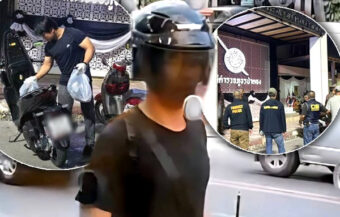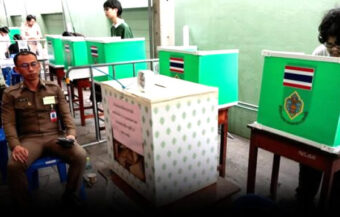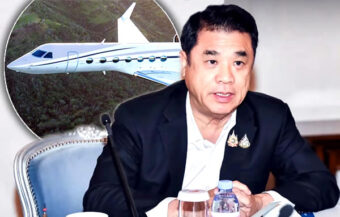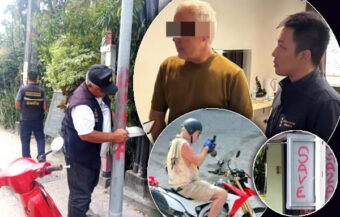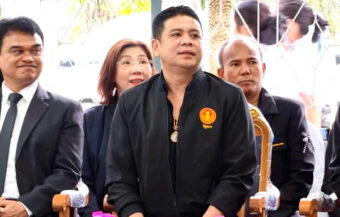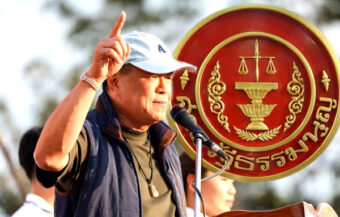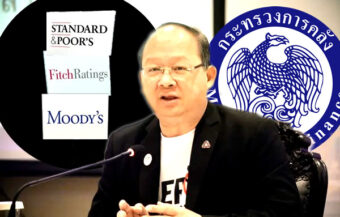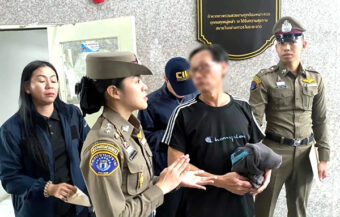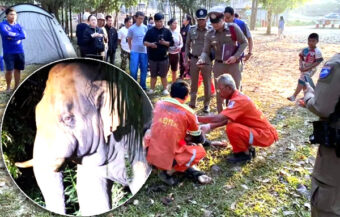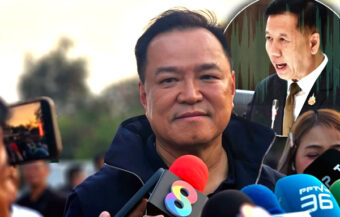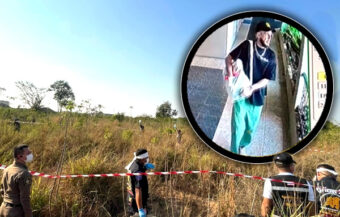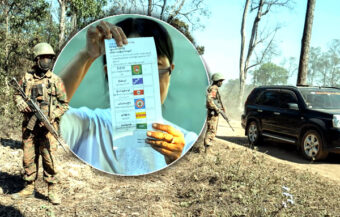Thailand and Cambodia ink a 13-point ceasefire deal after deadly border clashes. Thailand holds key positions and vows to end scam hubs in Cambodia. Despite the deal, experts warn peace is fragile as Cambodia appears to prepare for future conflict.
Thailand and Cambodia signed a deal on Thursday, but don’t mistake this for a lasting peace. Thailand got what it wanted—for now: continued talks and a fragile promise of calm. The kingdom is holding firm on its 11 military positions along the border and is dead set on crushing the rampant scammer networks hiding inside Cambodia. Yet many experts warn this deal is far from the final chapter. Cambodia looks like it’s gearing up for war, despite Thailand’s clear push to end the fighting and stop it from flaring up again.
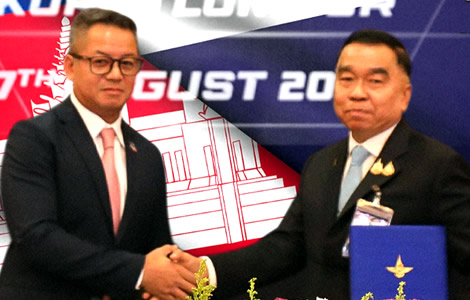
Thailand and Cambodia have reached a 13-point ceasefire deal following weeks of deadly border clashes. The agreement was signed on Thursday during a special ministerial session of the General Border Committee (GBC) in Kuala Lumpur. The session was chaired by Malaysia, which is currently holding the rotating ASEAN chairmanship.
Thailand was represented by Acting Defence Minister General Nattapol Nakpanit. He led a delegation of high-level military officials and government representatives. Cambodia’s delegation was headed by Defence Minister General Tea Seiha. The meeting also included observers from the United States, China, and ASEAN.
Notably, the talks followed five days of violent conflict along the border. The clashes left at least 43 dead and over 300,000 displaced. Fighting included artillery barrages and airstrikes. Although both sides blamed each other, neither had publicly committed to de-escalation until the Kuala Lumpur summit.
The ceasefire deal formalises previous framework and introduces practical enforcement measures
The deal represents a significant breakthrough. It is based on a previous seven-point framework agreed upon at the military command level. However, the new agreement formalises the ceasefire and adds several practical measures for enforcement.
According to Thai officials, Malaysia played a crucial role in mediating the talks. The Malaysian Chief of Defence Forces acted as a neutral facilitator. Consequently, the discussions proceeded in a relatively constructive atmosphere.
Thailand emphasised its commitment to peace and sovereignty. Officials stressed that all conflicts must be resolved through diplomacy, not war. Cambodia echoed similar sentiments, though some key issues remain unresolved.
One unresolved issue is the status of 11 strategic border positions. Thailand currently controls these zones. On Thursday, Thailand linked its control to a new proposal. This proposal involves clearing landmines along the border.
These landmines have caused severe casualties in recent weeks. For example, two Thai soldiers were badly wounded in July. As a result, mine clearance has become a priority for Thai negotiators.
Thailand accuses Cambodia of harbouring cybercrime syndicates linked to dangerous online scams
Another pressing issue is cybercrime. Thailand accuses Cambodia of hosting transnational scam compounds. These are linked to online fraud targeting Thai citizens and others in the region. According to Thai authorities, many of these operations are run by Chinese criminal syndicates.
Consequently, Thailand has vowed to crack down on these scam hubs. It insists Cambodia must cooperate in dismantling them. This demand has not yet received a formal response from Phnom Penh.
In fact, Cambodia’s silence on this matter is raising concerns in Bangkok. Thai intelligence believes the scam industry is protected by local elites. There are even allegations of ties to Chinese grey capital and state-linked entities.
A former Chinese tycoon reportedly informed Thai authorities of such connections. His testimony suggests that certain Chinese state bodies are complicit. These entities may be profiting from or shielding scam operations.
China and the United States support Thailand’s crackdown on Cambodian scammer network threat
Despite this, both China and the United States supported Thailand’s call for action. The FBI is already cooperating with Thai security agencies. Chinese security services, although discreet, are believed to share concerns over the scam economy.
General Nattapol stressed that Thailand is monitoring Cambodia’s sincerity. He described a three-phase assessment model. The first was at the Secretary-General level. The second was the current ministerial GBC level. The third will involve ground-level implementation.
Trust, he said, must be earned through action. Therefore, Cambodia’s behaviour in the coming weeks will be critical.
After the signing ceremony, General Nattapol returned to Bangkok. Onboard the military aircraft, he praised his team’s work. He thanked them for achieving what he called a historic diplomatic success.
He was met with applause from Thai officials onboard. The mood was triumphant. Yet officials remain cautious about long-term outcomes.
Thai top defence leaders attend signing as ASEAN observers prepare to monitor border compliance
The Thai delegation included top defence leaders. General Songwit Noonpakdee, Chief of Defence Forces, was present. So were the chiefs of the Army, Navy, and Air Force. Senior officials from the ministries of Foreign Affairs and Interior also attended.
Spokesman Jirayu Houngsub said the agreement reaffirmed Thailand’s commitment to diplomacy. It also underscored the value of bilateral and regional mechanisms.
To ensure compliance, ASEAN will send observers to the border. A temporary mission will use military attachés based in Thailand and Cambodia. A permanent team, led by Malaysia, is being planned.
Observers will not cross into opposing territory. Instead, they will report through existing regional structures. This is aimed at avoiding misunderstandings or further conflict.
In addition, both nations have agreed to hold more meetings. A follow-up GBC session will take place one month after August 7. Emergency meetings may be called if required.
The 13 points of the ceasefire deal are detailed, demanding an immediate halt to all military aggression
The 13 points of the ceasefire deal are detailed and comprehensive. Firstly, both sides must immediately halt all military action. This includes stopping attacks on both civilian and military targets.
Secondly, troops must remain in their current positions. No patrols or encroachments are allowed. Thirdly, both parties are banned from increasing military forces along the border.
Fourth, no new military infrastructure can be constructed near the conflict zones. Fifth, civilians must not be targeted under any circumstances. Sixth, all prisoners must be treated in line with the Geneva Conventions.
Seventh, medical evacuations must be permitted. Dead soldiers must be returned respectfully. Eighth, existing military-to-military communication channels must be maintained.
Ninth, the spread of fake news or misinformation is prohibited. Tenth, all commitments made in the earlier July 28 agreement must be upheld.
Regional Border Committees oversee enforcement. Observers will monitor ceasefire implementation
Eleventh, the Regional Border Committees (RBCs) will oversee local enforcement. Twelfth, temporary observers will monitor implementation. Thirteenth, a new GBC meeting is scheduled in one month.
However, some Thai analysts remain sceptical. They warn that Cambodia may not honour all terms. Associate Professor Dr. Dulyapak Preecharatch from Thammasat University is among them.
He notes that Cambodia recently extended its military conscription. Moreover, large numbers of Cambodian troops have been seen near the border.
He warns that future violations are likely. Therefore, Thailand must remain vigilant. It should also prepare for possible breaches of the agreement.
Cambodian reluctance to crack down on scammers and landmine clearance raises doubts over sincerity
Dr. Dulyapak adds that Cambodia’s response to scam suppression has been evasive. He believes Phnom Penh is reluctant to admit wrongdoing. Accepting Thailand’s terms could hurt Cambodia’s global image.
If Cambodia agrees to landmine clearance, it may face legal scrutiny. It could be accused of violating the Ottawa Convention. Meanwhile, minefields restrict Thai troop movements in contested zones.
Charged situation – Defence chiefs from Thailand and Cambodia meet in Kuala Lumpur. ASEAN damaged
Thai officials say that if peace holds, diplomatic ties can resume. They are hopeful, but not naive. Future talks may cover border demarcation and economic cooperation.
For now, Thailand sees the deal as a win. Still, it remains cautious. The next month will be critical in testing Cambodia’s sincerity and commitment to peace.
Join the Thai News forum, follow Thai Examiner on Facebook here
Receive all our stories as they come out on Telegram here
Follow Thai Examiner here
Further reading:
Charged situation – Defence chiefs from Thailand and Cambodia meet in Kuala Lumpur. ASEAN damaged
Fear on Eastern border under Martial law. Cambodian Bond nabbed on ฿162 a day from Phnom Penh regime
Cabinet meets after Cambodian ceasefire. Acting PM Phumtham spoke later with Trump for 30 minutes
Acting PM travels to Kuala Lumpur for ceasefire talks. Cambodia’s PM Hun Manet to attend amid PR war
Hot War rages on the Thai-Cambodian border following Cambodian troops offensive in Chong Bok area

